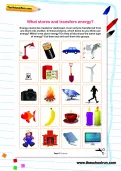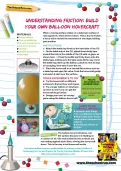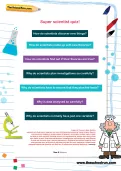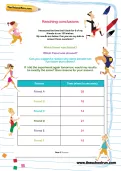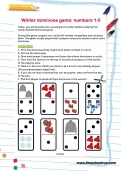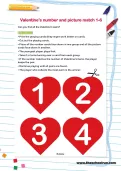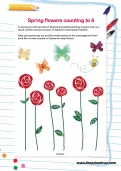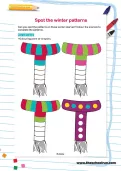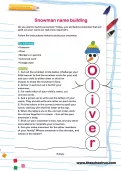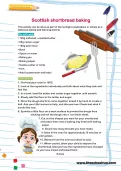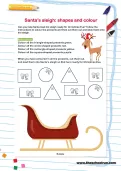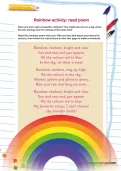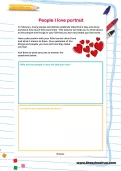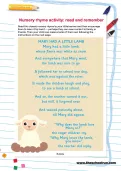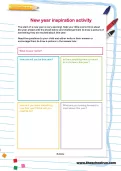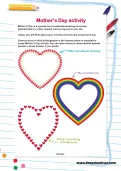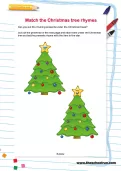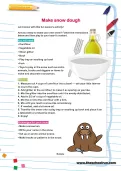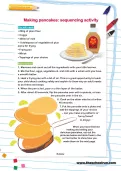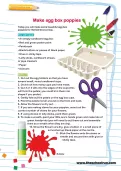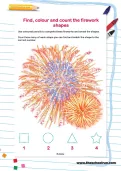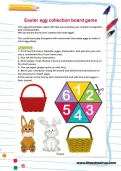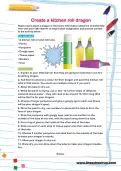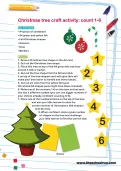worksheets
Free worksheets: Science, KS2, Y6
You’ll need to login or Register first to access these worksheets for free.
Once you’ve tried out our free worksheets, why not explore all our resources (1000s of worksheets, interactive tutorials, learning packs and more) with a 14-day FREE trial subscription.
What stores and transfers energy?
Energy cannot be created or destroyed, it can only be transferred from one store into another. In these pictures, which items do you think use energy? Which ones store energy? Do they all store/use the same type of energy? Cut them out and sort them into groups.
Understanding friction: Build your own balloon hovercraft
When a moving surface slides on a stationary surface it rubs against it, which slows it down. This is due to friction, a force which resists the movement of one object sliding past another. Understand more about friction with a fantastic practical project: make your own balloon hovercraft!
Super scientist quiz
Quiz questions to encourage your child to think about how scientists work and why they do the things they do.
Reaching conclusions
A worksheet showing results of an experiment with questions underneath to consider.
Winter dominoes game: numbers 1-5
Let's practise our counting and number skills by playing this winter-themed dominoes game.
Valentine’s number and picture match 1-6
Can you find all the Valentine’s pairs? A fun game to help your little one recognise and count numbers 1-6.
Spring flowers counting to 6
In spring you will see lots of flowers and plants starting to grow. Can you count out the correct number of leaves for the flowers below? Help your grown-up cut out the lovely leaves on the next page and then stick the correct number of leaves on each flower
Spot the winter patterns
Can you spot the patterns on these winter scarves? Colour the scarves to complete the patterns.
Snowman name building
Do you want to build a snowman? Today, you will build a snowman that will spell out your name (no real snow required!).
Scottish shortbread baking
This activity can be done as part of Burns Night celebrations or simply as a delicious baking and learning activity.
Santa’s sleigh: shapes and colour
Can you help Santa load his sleigh ready for Christmas Eve? Follow the instructions to colour the presents and then cut them out and stick them onto the sleigh.
Rainbow activity: read poem
Have you ever seen a beautiful rainbow? You might see one when there are lots of sunshine and rain showers in the same day. Read this rainbow poem with your little one and talk about your favourite colours, then follow the instructions to make a windsock.
People I love portrait
In February, many people worldwide celebrate Valentine’s Day and show someone how much they love them. This activity will help you to think about all the people and things in your life that you love and make you feel loved.
Nursery rhyme activity: read and remember
Read this classic nursery rhyme to your little learner and then encourage them to learn it by heart — perhaps they can even recite it to family or friends. Then your child can make a lamb of their own following the
instructions.
instructions.
New year inspiration activity
The start of a new year is very exciting! Help your little one to think about the year ahead and challenge them to draw a picture of something they are excited about this year.
Mother’s Day activity
Mother’s Day is a special day to celebrate amazing mummies, grandmothers or other special mummy figures in your life. Today, you will think about your mummy and why she is special to you.
Match the Christmas tree rhymes
Can you put the rhyming presents under the Christmas trees? Cut out the presents and stick them under the Christmas tree so that the presents rhyme with the item in the star.
Make snow dough
Let it snow with this fun sensory activity! Are you ready to make your own snow? Follow these instructions and then play to your heart’s content.
Making pancakes: sequencing activity
Do you know how to make pancakes? Cut out the pictures and stick them in the correct order to show each step. And then you get to eat them!
Make egg box poppies
Let's make some beautiful egg box poppies for Remembrance Day.
Find, colour and count the firework shapes
Use coloured pencils to complete these fireworks and reveal the shapes. Can you count how many of each shape you can find and match the shape to the correct number?
Easter egg collection board game
This egg-citing Easter game will help you practise your number recognition and counting skills. Will you be the bunny who collects the most eggs?
Create a kitchen roll dragon
Read a story about a dragon or find some information about the Chinese New Year with your little learner to inspire their imagination and provide context to the activity below.
Christmas tree craft activity: count 1-6
In this festive activity, your Nursery child will practise recognising and counting the numbers 1-6.
